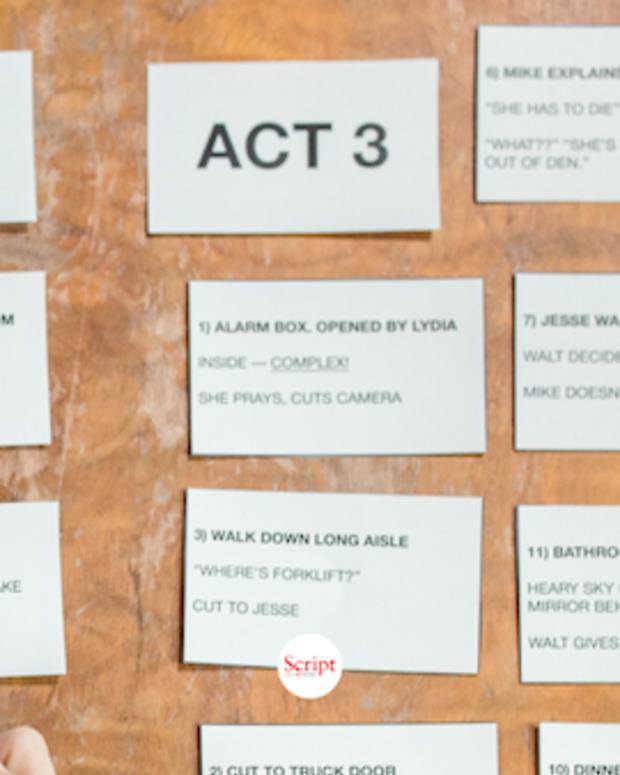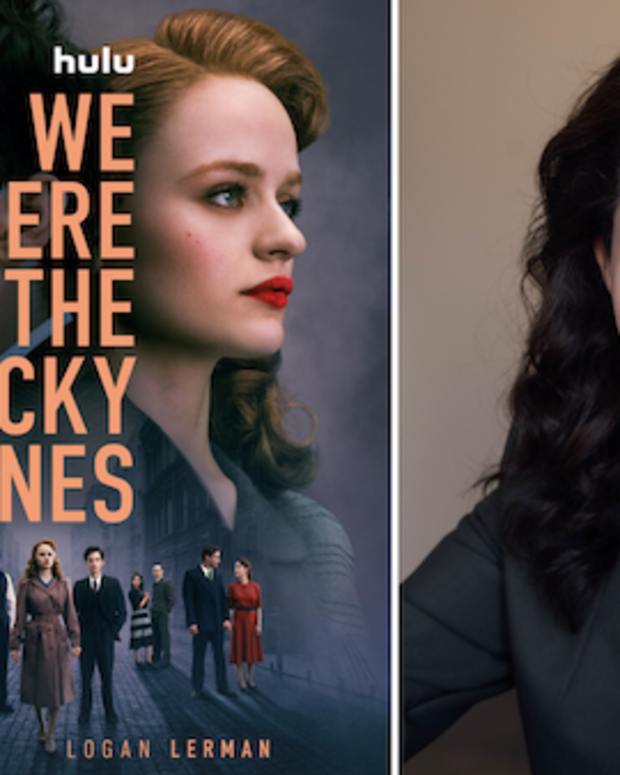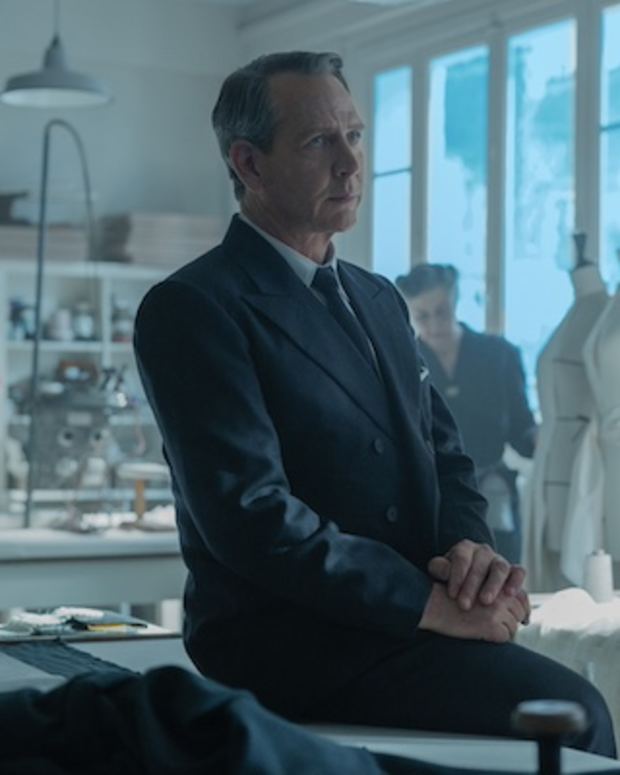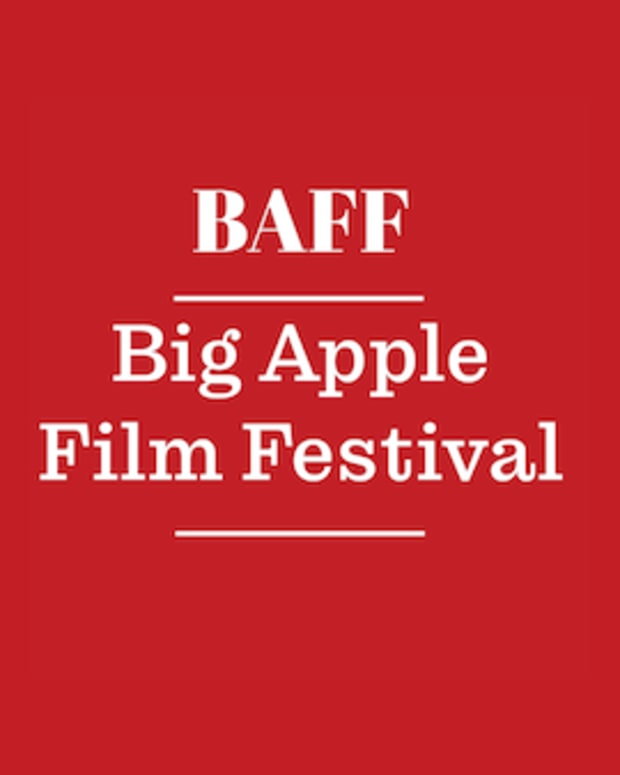Making a Plan with 'King Richard' Screenwriter Zach Baylin
Based on the true story that will inspire the world, Warner Bros. Pictures’ “King Richard follows the journey of Richard Williams, an undeterred father instrumental in raising two of the most extraordinarily gifted athletes of all time, who will end up changing the sport of tennis forever. Two-time Oscar nominee Will Smith (“Ali,” “The Pursuit of Happyness,” “Bad Boys for Life”) stars as Richard, under the direction of Reinaldo Marcus Green (“Monsters and Men”).
Driven by a clear vision of their future and using unconventional methods, Richard has a plan that will take Venus and Serena Williams from the streets of Compton, California to the global stage as legendary icons. The profoundly moving film shows the power of family, perseverance and unwavering belief as a means to achieve the impossible and impact the world.
Without a doubt, King Richard will be sweeping all categories for Oscar nominations - as it should. The storytelling offers a refreshing approach to biopics, especially that of iconic powerhouses - in that it grounds them as people first and foremost, belonging to an incredibly tight nit family, with a big plan to execute - and they do, exceeding all expectations.
I had the utmost pleasure speaking with screenwriter Zach Baylin about his emotional connection to the Williams family story, and harnessing Richard Williams' voice. Plus, Zach offers practical advice for writing biopics.
This interview has been edited for content and clarity.
Sadie Dean: What was the personal and emotional connection for you to these characters and their world as a family unit?
Zach Baylin: One of the things that jumped out immediately was I have two young kids and I had not found an avenue to write about being a parent. And I had been looking for a story where I could just investigate kind of that change in life that happens and the change in your priorities. And this was such a unique look at parenting. That definitely jumped out as something.
I'm a very big sports fan and the ideas of prodigies has always been something that fascinated me, so I was always kind of drawn to the Williams family story from that perspective as well. And then really, I fell in love with Richard as a character. As I started reading more about his life and watching interviews with him and one of the big discoveries that I made in researching Richard was this idea that tennis was not the first sort of big American Dream swing that he took. He was a guy who had looked at dozens of different kind of enterprises to both lift himself and his family up. And they've had not been successful or were flamed out for various reasons. And the improbability of taking tennis as another avenue towards that, but also that kind of really uniquely American story about someone who was just going go to the well a million times and try to figure out some avenue to succeed and to find respect. I fell in love with that idea. And knew that Richard was the kind of person that you don't normally get to see and those American Dream stories told through his perspective.
[Writing Stories You Want to See On Screen with ‘Queens’ Creator and Writer Zahir McGhee]
Sadie: Those are such big thematic elements too. In terms of research, this movie had a very active blessing from the family, which is typically unheard of, but in terms of writing those first initial drafts and the one that landed on the Black List in 2018, how much were you immersing yourself in this world and research to find those individual voices, especially Richards?
Zach: I did a ton. The inception of this story, I can tell you quickly, I had a general meeting with Tim White, who was one of the producers on the film. And we had met in New York about a different project. And when I was leaving the meeting, I happened to mention that I was going to the US Open and Tim was like, ‘Oh, you like tennis? Do you have five more minutes so we can talk?’ and Tim really had been circling the idea of Richard as a character and Venus and Serena's origin as a movie for a while and immediately when he talked about it was like this is a huge story. And there's a movie there because a lot of times, you know true stories, it’s incredible and the setting is so amazing, and there's some iconic figure in it, but not necessarily enough that there's a through line of a movie. And that's kind of immediately what I saw was apparent in this. Over like about a weekend, I did nothing but read about the Williams family. And that was just the initial time where I wrote him back and I said, ‘Man, I think this is what Richard really went through. This is what the family went through. This is the window of what this movie could be and what emotion could be behind it,’ and that's when I started breaking story. I just read everything I could - Serena wrote a book, Richard wrote a book, their hitting coaches wrote books, everyone who sort of touched them in the early 90s, wrote about it. There was a lot of contemporaneous reporting in Sports Illustrated, a handful of really seminal pieces on them that were really illuminating and the New York Times started covering Venus really early, even when she was a junior, so that stuff was super useful.
Having the contemporaneous accounts really helped frame the way the Williams family was perceived at that time. And that was really important because I never wanted to retrofit this movie into how it would feel today. It was important to look at like, what was the world that Richard and Oracene, Serena and Venus and all the sisters were walking into in the early 90s. There's Richard, you know, was a huge, for better or worse, an enormous self-promoter. There's lots of tape and interviews of Richard on camera. So, it was he his voice I found became easier for me to write. And that's kind of what the process was I did with the original Black List script.
I was able to interview Paul Cohen. I was able to talk to a lot of Junior Tennis people who had come up through the system at the same time as the Williams family. I knew I was getting that world right, but I also knew that there was going to be nuances and frankly little intimate details and stories, that were going to be needed for this movie that I was only going to be able to get from Venus and Serena, and Oracene and all of the rest of the sisters. So Tim, the producer and I and Trevor his brother, sort of knew that we were going to have a really great script that we could use as a calling card and take to the Williams family and say this is representative of the movie that we want to make and the window of time and the way we're looking at your experiences. But we also know had them saying, ‘Well, here's what it was like actually - what we were like, five girls in a van with our father going to the courts every morning, here are the conversations that we had in the van, Tunde did homework and Lyn hated going to practice most mornings,’ and all those little things of what those interactions were that we're going to flesh out so that it was about the specific people and not just like a family that went through this, but this family.
Sadie: Those little nuances add so much to that world.
Zach: The script just kept getting richer and richer once Rei was involved and once Will was involved. I sat down with Oracene over a week during the US Open in 2018 with that script, and was able to say like, ‘OK, this is the movie,’ it was clear, the early drafts of the script, and if anyone's character needed a lot of work it was Oracene's because while Richard was a very public facing figure, she is much more internal, much more private, but no less of a force, no less opinionated, but just was much more protective. And so I was able to sit down with her and interview her and ask her about her specific experiences. A lot of really great stuff came out of those interview and her character really evolved.
Aunjanue brought so much to that role. I had taped interviews of my conversations with Oracene , and then I gave those to Aunjanue and she would go back to them and say, ‘She says this in the interview, here's one of the little aspects of her coaching approach, can we get that into scene?’ And so, it became very collaborative with Aunjanue to make sure that the character was going to come alive in the way that she could portray it and I thought she just did such an amazing job.
[Interview with Sundance Triple Award Winner 'HIVE' Writer-Director Blerta Basholli]
Sadie: She's such a force to be reckoned with. How many years until production or at least you had the shooting draft?
Zach: In terms of timeline, initially, I kind of know all this now because I've been back through it, but I have this original email that I wrote Tim and I was like, ‘here's the movie.’ That was like two days after I met him and that was in September of 2017. The draft that Will read was sometime in the Spring of 2018. And then we went into pre-production in the fall 2019. This is my first movie that's been produced but I think in some respects, that actually seems pretty fast. In other respects, there were many dark days where we had the script and felt like it was really great and it took a long time and a lot of effort to actually sit down with the Williams family and have them read the script. And I totally understand their reluctance. But it felt like a long time, even when we knew that the script had a lot of interest from the studios and everything.
Sadie: It all it all worked out, thankfully. I feel like there's a freshness on this take of storytelling. Like, you're not victimizing your characters, you're not making them these over-the-top flawed stereotypes. And we know what the Williams sisters are going to become, it’s the journey of people that they're going to become. And there's this wonderful focus on the family, their dynamics and what Richard set into motion with his big plan. And I also feel like what’s so fresh, and I wish this wasn’t the case, but it’s so long overdue in Hollywood movies, seeing the idea of black love and hope winning and I'm curious for you as a writer, was there a core theme at play when you first started out with this or was that your intended direction with this script?
Zach: I think a lot of scenes emerged became really indicative of that. When I started researching the script and started writing it, it was very clear that family dynamic was going to be really important. While Richard obviously was like the most larger than life character in the world in those years, it felt natural to me that he was going to be in the center, but that it was such a collective journey, and a collective effort that all of them went through. So that like, while Venus and Serena, have all the accolades and they were the ones on the court, Isha, Lyn, Tunde, Oracene, all of them had to get up at 6 am and go to the court together and that the other three sisters were shagging balls while Venus and Serena were practicing and that the collective family decisions that, ‘OK, these achievements will be all ours, but it will take all this collective sacrifice to get there.’ Oracene told me this story that basically Richard had come up with this plan. It was extremely improbable and that it was obvious that it was going to take tremendous team effort to do it, and that the whole family sat down when they were young and said, ‘Do you all want to do this? And if we don't, then we won't, but if we want to do it, it's going to be as a family, and we're going to commit to it right now.’ That was really illuminating.
In terms of shining light on a really beautiful black families experience, that was a really collaborative effort. And when Rei got involved with the script, he really was conscientious of bringing that to the front and I felt like I was there to sort of listen and hear everyone's experiences and figure out how to get that into the story. But that stuff really came out of Will talking about what his family experience, and how they raised their kids and Rei talking about his as well and, of course, Venus and Serena and Lyn, bringing all that in. But I remember, there's a really beautiful scene towards the end of the movie where Oracene is braiding Venus and Serena's hair, which is like one of my favorite scenes in the movie and that's like a little nugget that came out, Isha told us that before they would go into tournaments that their parents would often say, ‘Remember the people who came before you.’ And that Sojourner Truth was someone that was brought up a lot and so there was a moment in earlier drafts of the script where we're seeing that conversation and it was in a car before a tournament and through working with Rei and working with Aunjanue, everyone just wanting to really honor those moments between a mother and her daughters that we found a way to put it into that moment. And I think it's really beautiful, and that was a very collaborative way to get there.
Sadie: such a touching, pivotal moment, even with the mom too, because she's this silent spark in that family. Tell me more about your collaboration process with Rei especially with this being your first produced screenplay and working with a director like him.
Zach: Well, I felt extremely lucky because I was on set every day. We had a really long rehearsal period before the movie with Will, Demi and Saniyya, and as the different actors came through, when Aunjanue arrived, we were with her for weeks and Bernthal and that was a great experience. You hear lines read and they don't work and then ideas get thrown out. And I like the process of having whoever has the best idea and let's take it and then I can figure out how to make it work story wise into the script. Those actors are extremely talented, and they get into character and you just hear things and you say, ‘Oh, I'm gonna steal that.’ [laughs]
Rei had moved out from New York, we were both living in New York before the movie. We both have kids who are about the same age, and our experiences were really linked from the beginning of the movie and his processes was really open in that he really encouraged a lot of collaboration. He wanted to hear everyone's thoughts, and he really wanted the family to feel like it was a family. And so he got, Demi and Saniyya, and all the actresses who play the other sisters together all the time, so that they were spending a lot of time together, and then we kind of like mind their interactions to bring them into the movie. So, in that way, it did really become very collaborative.
Another scene that I am really proud of, and I think it's one of the best is the scene between Aunjanue and Will in the kitchen at the house which is like the big fight. And that had been in earlier drafts, the content of that scene had been earlier in the movie. And we kept kind of moving it around trying to see where this big revelation that Richard had another family and other children and when it felt like the audience needed to know that - what was going to be the big blow when they heard it. The night before we shot that scene, Rei, Will and Aunjanue and I stayed after set and just read through it again. And again. And I wrote it that night right before we shot it the next day based on hearing them rehearse. What were the little moments that were going to turn the scene. And then you hear Aunjanue say something very controlled, but it's really explosive and this is the moment where that's going to pull out this revelation, where the context was always there, but then you work with actors and you see the emotion and you realize that maybe you have to move some of the elements around.
Sadie: The beauty of discovery so amazing and to have that artistry at your fingertips. I sense that a lot of writers that are curious about writing biopics have a lot to learn from your screenplay. With that said, any advice to those writers who are about to set out in writing a biopic?
Zach: When Tim and I looked at breaking the story it was, what's the movie? I'm working on a couple of other biopics and people have huge lives, but if it's episodic, I don't think it's as emotional and as captivating as if you can find the window, which really is, the moment where these people became who they are or the moment that their character came fully into view or was challenged. And I think that finding a real engine for me, was really important. Not just that these are great characters and this is a great world, but there's a lot to it and a lot to lose in this story. And that's why we wanted to tell it in this timeframe. I still, as I'm doing it, and trying to break story on people's whole lives, I really go back to that - where's the moment where this all changed? And I want to see it all in that window.
King Richard is available in theaters November 19, 2021 and on HBO Max via the Ad-Free plan; it will be available on HBO Max for 31 days from theatrical release.












